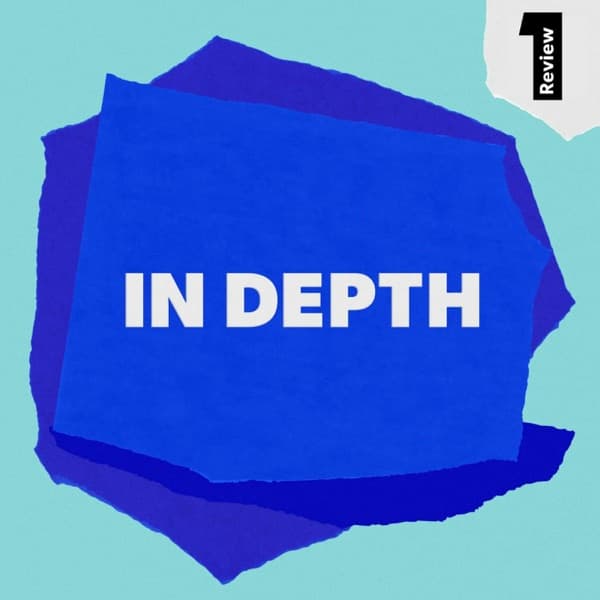Modern Wisdom: Greg McKeown discusses the importance of essentialism, focusing on prioritizing what truly matters amidst modern distractions.
Latent Space: The AI Engineer Podcast: The Latent Space Live conference at NeurIPS 2024 discussed the evolving landscape of AI startups, highlighting key trends and opportunities for innovation.
Modern Wisdom - #880 - Greg McKeown - How To Focus On What Matters Most

Greg McKeown, author and leadership consultant, emphasizes the importance of essentialism in today's distraction-filled world. He discusses how essentialism has evolved over the past decade, highlighting the difficulty of saying no and the importance of setting boundaries. McKeown introduces the concept of the 'disciplined pursuit of less but better,' suggesting that success often leads to more complexity and the need for essentialism increases as one becomes more successful. He shares insights on how to identify priorities using a six-minute daily process of confusion to clarity to creation, which involves free writing to clear the mind and identify key tasks. McKeown also discusses the challenges of maintaining essentialism as one achieves success, noting that success can lead to 'success vertigo' and the need to continually reassess priorities. He suggests that people should periodically disconnect from social media to reduce noise and focus on meaningful connections.
Key Points:
- Essentialism is about focusing on what truly matters and avoiding distractions.
- Saying no is difficult but crucial for maintaining focus and setting boundaries.
- Success can lead to complexity, making essentialism more necessary as one becomes successful.
- A six-minute daily process can help identify priorities by moving from confusion to clarity.
- Disconnecting from social media periodically can help reduce noise and improve focus.
Details:
1. 🎙️ Introduction to Essentialism with Greg McKeown
- Success requires focusing on what truly matters amidst modern distractions.
- Choosing priorities effectively is crucial to avoid common pitfalls.
- Essentialism involves discerning the vital few from the trivial many, emphasizing quality over quantity.
- The practice of essentialism leads to more meaningful and productive outcomes by eliminating non-essential tasks.
2. 📚 The Evolution of Essentialism and Its Impact
- Essentialism has evolved significantly over the past decade, becoming increasingly relevant and useful in both personal and professional contexts.
- Learning to say no is a critical skill that enhances focus and productivity, yet many find it challenging to master.
- Counteracting the desire for novelty is essential for maintaining focus on important tasks, preventing distractions that can derail progress.
- Cutting losses, though difficult, is necessary for progress and efficiency, allowing individuals to redirect resources to more promising opportunities.
- Setting boundaries is crucial for effectively managing personal and professional life, preventing burnout and overcommitment.
- As success increases, new challenges arise, necessitating a reevaluation of priorities and strategies to maintain balance and effectiveness.
- Essentialism addresses common issues faced by high achievers, such as overcommitting and exceeding work capacity, by promoting a more focused approach.
- The book 'Essentialism' remains a top recommendation for those seeking to improve their focus and productivity, offering practical strategies for implementing essentialist principles.
3. 💪 Fitness and Wellness Tools for Success
- The RP Hypertrophy app, designed by Dr. Mike Israetel, enhances gym gains and enjoyment with science-backed, evidence-based methods.
- Features over 45 pre-made training programs and more than 250 technique videos, eliminating guesswork in lifting routines.
- Offers a 30-day money-back guarantee for a risk-free trial.
- Current promotion provides up to $50 off at rpstrength.com/modernwisdom.
4. 🛠️ Tools and Gadgets for Modern Living
4.1. Whoop Wearable Device
4.2. Manscaped Grooming Products
5. 🧠 The Paradox of Success and Essentialism
- The paradox of success involves four stages: clarity leads to success, which leads to options and opportunities.
- Success can lead to the 'undisciplined pursuit of more,' which can become problematic.
- The more success someone experiences, the greater the need for essentialism to manage it effectively.
- Being successful at success requires figuring out how to prevent it from becoming overwhelming.
6. 🔍 Navigating Success and Complexity in Modern Life
6.1. Essentialism and Prioritization
6.2. Managing Success and Complexity
6.3. Balancing Tasks and Sustainable Productivity
6.4. Navigating Human Systems and Meaning Frames
7. 🧭 Strategies for Maintaining Focus and Balance
7.1. Understanding Success Vertigo
7.2. The Machine of Success
7.3. The Observer's Advantage
7.4. The Challenge of Saying No
7.5. Learning New Skills at Higher Levels
7.6. Managing Chaos and Confusion
7.7. Navigating Opinion Overload
7.8. Resources for Focus and Balance
Latent Space: The AI Engineer Podcast - The State of AI Startups [LS Live @ NeurIPS]
![The State of AI Startups [LS Live @ NeurIPS]](/_next/image?url=https%3A%2F%2Fis1-ssl.mzstatic.com%2Fimage%2Fthumb%2FPodcasts116%2Fv4%2F97%2F39%2Fd6%2F9739d6fc-d55e-483b-c8fd-66764254ab1d%2Fmza_11445832196745209483.jpg%2F600x600bb.jpg&w=1920&q=75)
The Latent Space Live conference at NeurIPS 2024 in Vancouver focused on the state of AI startups, featuring insights from Sarah Guo and Pranav Reddy of Conviction. They discussed the top five themes of 2024, including the competitive landscape of foundation models, the rise of open-source models, and the decreasing cost of AI intelligence. The conference highlighted the potential for startups to innovate in areas traditionally dominated by incumbents, such as legal, healthcare, and education, by leveraging AI to offer novel capabilities at lower costs. The speakers emphasized the importance of first principles thinking and the opportunity for startups to capture value by creating innovative products that leverage AI. They also discussed the challenges and opportunities in the AI ecosystem, including the need for new infrastructure to support AI agents and the potential for consumer-focused AI applications to emerge as the technology matures.
Key Points:
- AI startups are thriving due to a more competitive landscape in foundation models and open-source options.
- The cost of AI intelligence has significantly decreased, enabling more experimentation and innovation.
- Startups can capture value by focusing on novel AI applications in traditionally hard-to-enter markets like legal and healthcare.
- New infrastructure is needed to support AI agents and multimodal applications, especially in enterprise settings.
- The AI ecosystem is increasingly supportive of startups, offering opportunities to innovate and capture market share.
Details:
1. 🎵 Musical Prelude
- This segment contains only music and does not provide specific, actionable insights or metrics.
2. 🎤 Welcome to Latent Space Live
2.1. Introduction to Latent Space Live
2.2. Survey Insights
2.3. Attendance Statistics
3. 🚀 Keynote Introduction: AI Startups
- The keynote will cover the top five themes for AI startups in 2024, focusing on what ideas are successful and which are not.
- Discussion will include shifting market opportunities and the perceived advantages of big tech incumbents, questioning their actual strength.
- The session is led by Sarah Guo, founder at Conviction, and Pranav Reddy, partner at Conviction, providing insights from their experiences.
- Key themes include the impact of AI on various industries, strategies for startups to compete with established tech giants, and emerging trends in AI technology.
- The keynote aims to provide actionable insights for entrepreneurs looking to navigate the evolving AI landscape.
4. 💡 Conviction's Journey and Insights
4.1. Introduction to Conviction
4.2. Investment Focus
4.3. Strategic Insights and Opportunities
5. 🔍 AI Trends and Themes of 2024
- OpenAI launched the ability to upload images to ChatGPT in October 2023, expanding its functionality beyond text input and output.
- The Mistral team introduced the Mixtral model just before NeurIPS, highlighting advancements in AI model development.
- Google announced the Gemini project, indicating ongoing innovation in AI technologies.
- Europe initiated its first round of AI regulation, marking a significant step in governance and oversight of AI technologies.
- Five key themes have emerged in 2024 that define the landscape for AI and startups, reflecting significant changes and trends in the industry.
6. 🏆 Competitive Landscape in AI Models
- The competitive landscape for foundation models is much closer now than it was in 2023, with multiple players becoming more competitive against OpenAI.
- LM Arena evaluations show that a 100 ELO difference indicates a model is preferred two-thirds of the time. Previously, OpenAI models were over 100 points better than competitors, dominating the market.
- Currently, the best model in evaluations is not from OpenAI, but from Google, highlighting a shift in competitive dynamics.
- There are now various proprietary and open-source language model options that are increasingly competitive.
- OpenAI's market share in terms of spend has decreased from nearly 90% in November 2023 to about 60%, indicating increased competition and the ease of switching between language model APIs.
7. 📈 Open Source and Cost Trends
7.1. Open Source Competitiveness
7.2. Cost Efficiency of Open Source Models
8. 🔬 New Modalities in AI
8.1. Cost Reduction in AI Models
8.2. New Modalities in Biology
8.3. Advancements in Voice Models
8.4. New Use Cases and Execution
9. 📉 The End of Scaling Debate
9.1. SweBench Benchmark
9.2. New Modality: Video
9.3. End of Scaling Debate
10. 💼 AI Startups and Funding Realities
10.1. Scaling Paradigms
10.2. Value Functions in Undefined Spaces
10.3. AI Funding Environment
11. 🔄 Service Automation and Search Innovations
11.1. Service Automation
11.2. Search Innovations
12. 🎨 Democratization of Creativity
- The democratization of creative and technical skills has expanded significantly across various modalities such as audio, video, image, media, text, and code, leading to fully functioning applications.
- End users, who were not traditionally considered important markets by the venture industry, are now significant growth drivers for companies in this space.
- There is a latent demand for creativity, including visual, audio, and technical creativity, which AI applications can fulfill.
- Midjourney exemplifies the potential of AI in democratizing creativity, showing that many people are interested in generating images for diverse use cases, despite initial skepticism about their professional applicability.
- The range of quality and controllability in creative domains is still developing, indicating that we are in the early stages of this AI wave.
- Investing in enabling layers such as compute and data is crucial, as the needs for expert and diverse forms of data are evolving.
13. 🧠 AI's Role in Traditional Markets
13.1. Investment Trends in AI
13.2. Diversity and Competition in AI Models
13.3. Challenges and Opportunities in the Product Layer
14. 🔄 Startups vs. Incumbents
14.1. Challenging Markets for Startups
14.2. Emerging Consumer Companies
14.3. Outcome-Based Selling
15. 🌐 Software 3.0 and Market Opportunities
15.1. Elastic Demand for Software
15.2. Incumbents vs. Startups
15.3. Data Challenges
15.4. Software 3.0
16. 🚀 Call to Action for Startups
- Startups have a competitive edge over large companies due to their ability to quickly adapt to market changes.
- Emerging markets offer a trillion dollars of value, presenting significant opportunities beyond traditional software markets.
- Outcomes-based pricing is gaining traction but remains challenging to implement effectively, requiring innovative approaches.
- Startups are increasing their spending on compute resources, necessitating creative management of gross margins and data acquisition.
- The development cycle is evolving, prompting a reevaluation of product strategies and infrastructure management.
- There is a shift towards hardware and compute optimization, moving away from sole reliance on cloud providers.
- The current market environment is highly supportive of startups, offering the greatest technical and economic opportunities in decades.
- The unbundling and rebundling of technology cycles will distribute value globally, creating opportunities across various sectors.
- 2024 is anticipated to be a favorable year for startups, with an ecosystem increasingly supportive of ambitious ventures.
17. ❓ Q&A: Startup Durability and Funding
- Companies can rapidly scale from zero to 80 million in revenue but may stall due to challenges of scale, indicating that revenue numbers can overstate business maturity.
- Key challenges for scaling companies include serving customers effectively, scaling leadership, and maintaining quality service levels.
- A company that scaled from zero to 20 with 20 employees and hundreds of thousands of users faces significant challenges, highlighting the complexity of rapid growth.
- The concept of 'GPT-wrapper' companies, which rely on simple prompts and SEO, is not seen as a durable business model.
- The value represented by rapid growth (e.g., 0 to 20 or 0 to 80) is significant but not necessarily durable, as it may be driven by novelty rather than sustainable business practices.
- The focus should be on identifying which companies have defensible positions and where revenue or usage is not just a novelty.
18. 💬 Q&A: Multimodality and Market Dynamics
18.1. Venture Fund Size and Economics
18.2. Investment Strategy and Cost Efficiency
18.3. Experimentation and Product Market Fit
18.4. Efficiency and Revenue Metrics
18.5. Investment Pacing and Ecosystem Engagement
19. 💡 Q&A: Intelligence Pricing and Future-Proofing
19.1. Enterprise Demand for Multi-Modality
19.2. Transition to Intelligence Pricing
19.3. Intelligence Pricing and Market Dynamics
20. 🔧 Q&A: Infrastructure and Consumer Companies
20.1. AI Model Pricing and Business Strategy
20.2. Resource Access and Strategic Investment
20.3. AI Hardware and Agent Development
21. 🔮 Closing Remarks and Future Outlook
21.1. Emergence of AI Consumer Companies
21.2. Role of Young Adopters and Experienced Professionals
Included Channels
 All-In with Chamath, Jason, Sacks & Friedberg
All-In with Chamath, Jason, Sacks & Friedberg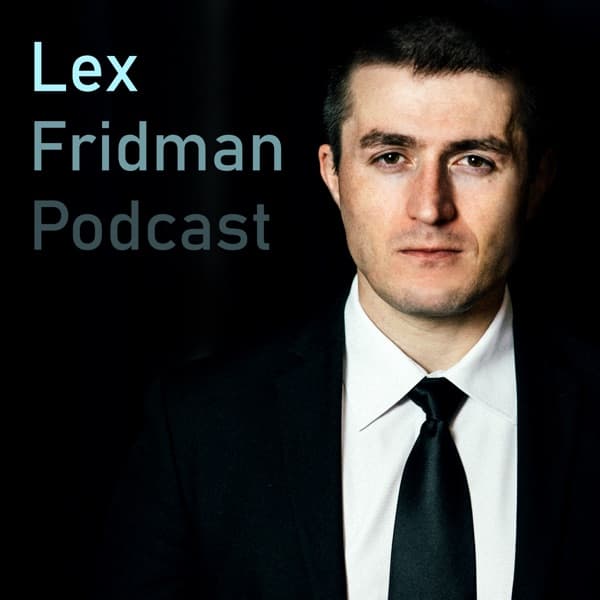 Lex Fridman Podcast
Lex Fridman Podcast Modern Wisdom
Modern Wisdom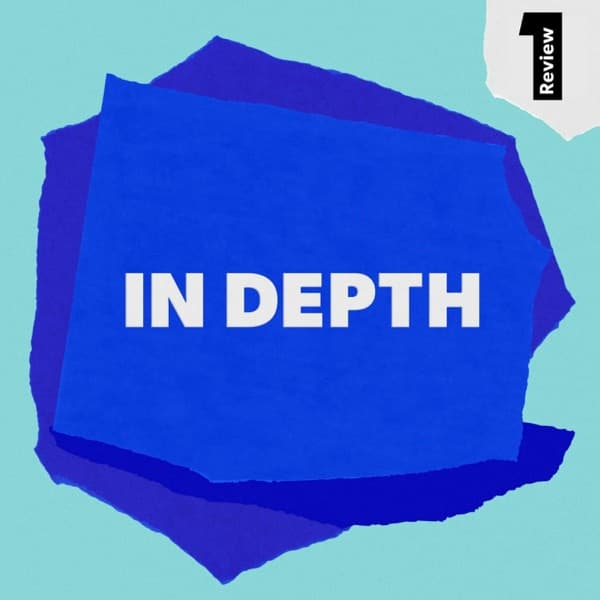 In Depth
In Depth Greymatter
Greymatter a16z Podcast
a16z Podcast Lenny's Podcast: Product | Growth | Career
Lenny's Podcast: Product | Growth | Career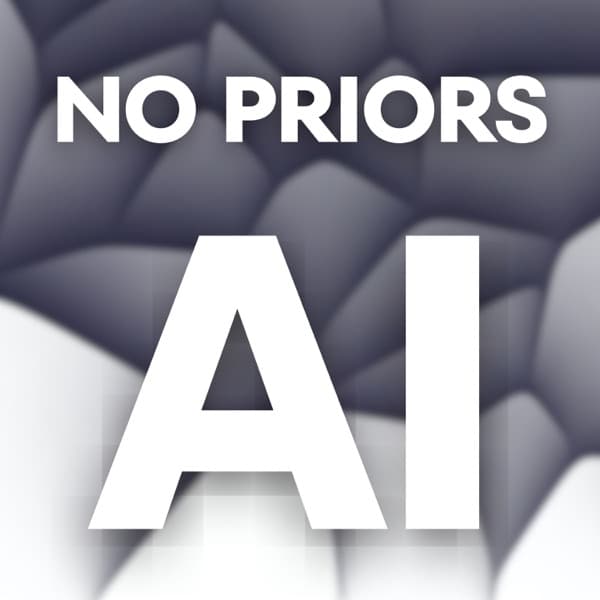 No Priors AI
No Priors AI Lightcone Podcast
Lightcone Podcast The Twenty Minute VC (20VC): Venture Capital | Startup Funding | The Pitch
The Twenty Minute VC (20VC): Venture Capital | Startup Funding | The Pitch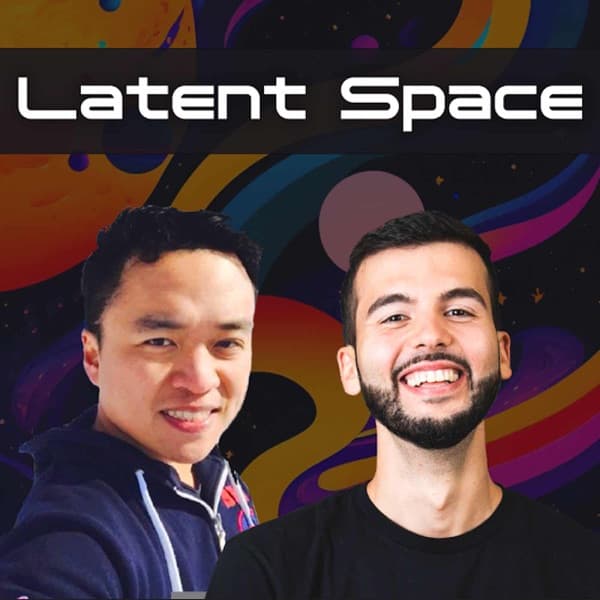 Latent Space: The AI Engineer Podcast
Latent Space: The AI Engineer Podcast How I Built This with Guy Raz
How I Built This with Guy Raz BG2Pod with Brad Gerstner and Bill Gurley
BG2Pod with Brad Gerstner and Bill Gurley




